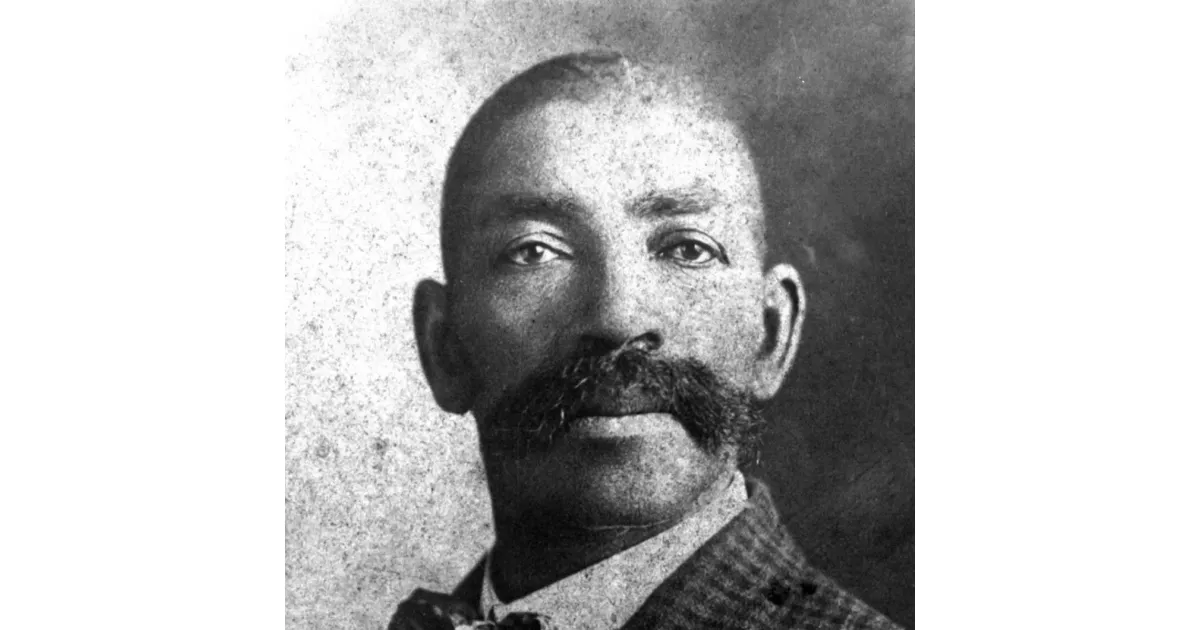"Bass Reeves, a former slave, led an extraordinary life as a gunfighter, farmer, scout, tracker, railroad agent, and Deputy U.S. Marshal. Fluent in multiple Native American languages, he became one of the first African American Deputy U.S. Marshals west of the Mississippi. Operating in the perilous Indian Territory, he apprehended a staggering 3,000 to 4,000 criminals and fatally shot twenty in self-defense during his career."
1900: Marriage to Winnie Sumter
In 1900, after the death of his first wife, Bass Reeves married Winnie Sumter. This marked the beginning of his second marriage.
1902: Arrest of Benjamin Reeves
In 1902, Bass Reeves arrested his son, Benjamin 'Bennie' Reeves, who was charged with murdering his wife, Castella Brown. This event marked a significant personal and professional challenge for Reeves.
January 22, 1903: Benjamin Reeves' Conviction
On January 22, 1903, Benjamin 'Bennie' Reeves, the son of Bass Reeves, was convicted for the murder of his wife, Castella Brown, by a jury in Muskogee. The presiding judge, C. W. Raymond, sentenced Bennie to life imprisonment at Fort Leavenworth, Kansas.
1907: Bass Reeves' Retirement
In 1907, Bass Reeves retired after a long and distinguished career as a deputy U.S. Marshal. He had made thousands of arrests and had a notable record of defending his life by killing 14 outlaws.
1907: Bass Reeves Joins Muskogee Police Department
When Oklahoma became a state in 1907, Bass Reeves, then 68 years old, joined the Muskogee Police Department. He served as an officer for two years before retiring due to illness.
January 12, 1910: Bass Reeves' Death
Bass Reeves, a notable figure known for being one of the first African-American Deputy U.S. Marshals west of the Mississippi River, passed away on January 12, 1910. Throughout his career, Reeves made over 3,000 arrests and killed twenty men in the line of duty.
1910: End of Marriage to Winnie Sumter
The marriage between Bass Reeves and Winnie Sumter lasted until 1910, the year Bass Reeves passed away. This period marked the end of his second marriage.
1972: Paul L. Brady's Appointment
In 1972, Paul L. Brady, the great-nephew of Bass Reeves, became the first Black man appointed as a federal administrative law judge. This event highlighted the continuing legacy of the Reeves family.
Mentioned in this timeline
Oklahoma is a state in the South Central region of...
Mississippi is a state in the Southeastern and Deep South...
Kansas is a Midwestern U S state bordered by Nebraska...
Trending

Joe Montana nicknamed Joe Cool and The Comeback Kid is a Hall of Fame quarterback who played seasons in the...

7 months ago Deion Sanders excited to rejoin Colorado, praises Joey McGuire, addresses health concerns.

2 months ago Billy Strings Teases Spring 2026 Tour Dates and Shares Activity Sheet.

2 months ago Giants GM Defends Roster Amidst Struggles, Acknowledges Mistakes After Daboll's Firing

9 months ago Will Forte reflects on SNL, Alan Alda & Tina Fey reunite for Four Seasons.

Jeremiah O'Connell is a renowned American actor celebrated for his diverse roles in film and television His career spans from...
Popular

Thomas Douglas Homan is an American law enforcement officer who...

William Franklin Graham III commonly known as Franklin Graham is...

XXXTentacion born Jahseh Dwayne Ricardo Onfroy was a controversial yet...

Jupiter is the fifth and largest planet from the Sun...

Instagram is a photo and video-sharing social networking service owned...

KFC or Kentucky Fried Chicken is an American fast-food chain...
